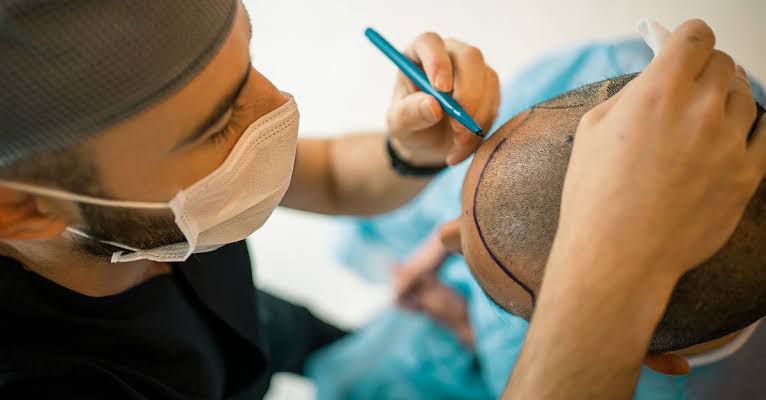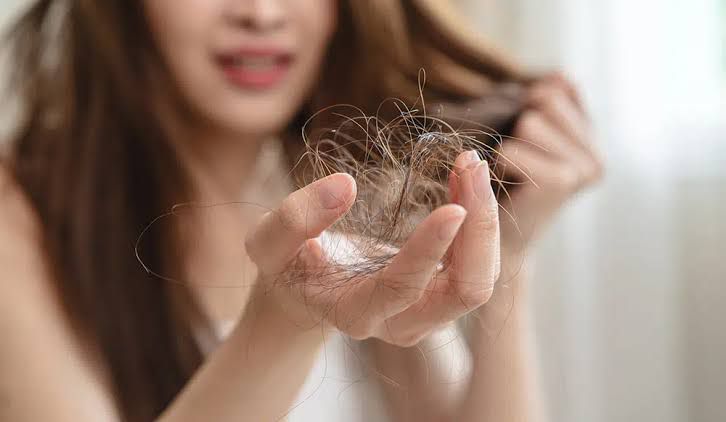Hair loss may be a common concern, but experts warn that treating it without understanding its root cause can do more harm than good. In an exclusive chat with The Pioneer, leading dermatologists and trichologists stressed the importance of undergoing proper medical screening before opting for any hair loss treatments or transplants
Highlighted quote: Hair Transplantation results look very natural results that are permanent especially when we can harvest the donor hair roots from the beard and body. Modern day techniques such as Follicular Unit Extraction (FUE) are minimally invasive and deliver natural-looking hairlines. We assess the scalp, donor area and overall health before recommending surgery. Now we are doing a more advanced version of FUE called microFUE which gives scarless natural results

Tejal Sinha
In today’s modern world most people experience anxiety, stress and depression due to their daily work lifestyle, financial problems and other family issues as well. Hair loss which causes an effect on half of the world population has become more than just a cosmetic concern. It also creates an emotional impact on the wellbeing and quality of life. The causes of the same ranges from the genetic predispositions and hormonal imbalances, nutritional deficiencies and mechanical stress.
Effective management of the same issue requires a multidisciplinary approach from the doctors belonging to the various disciplines.
According to Dr. Sandeep Arora, Dermatologist, Apollo Spectra Hospital, Chirag Enclave Delhi said, “Understanding the root cause of hair loss is quite crucial. People ignore hair fall by considering it very normal. But if an individual is losing more than 100 strands on a continuous basis for daily weeks then an individual should consult a doctor”.
A study published by the American Academy of Dermatology (AAD) highlights that early detection and timely treatment can significantly slow down or reverse hair thinning in many individuals.
As per Dr. Sushmitha, Dermatologist, Dermatosurgeon,Hair Transplant Surgeon, SPARSH Hospital, Yeswanthpur, Bangalore said, “The scalp of an individual is like soil of hair. If it is unhealthy then the hair of an individual does not grow well. Poor hygiene, excessive heat, harsh chemicals can cause damage to the hair roots and lead to breakage and hair fall”.
An individual should adopt regular scalp cleansing, gentle hair products and avoid excessive heat or chemical treatments, recommended Dr. Sushmitha. The International Association of Trichologists (IAT) supports this approach, stating that maintaining scalp hygiene and minimizing physical damage can prevent a large portion of hair loss cases.
According to Dr. Saket Kant, Principal Consultant, Endocrinology & Obesity Medicine, Sri Balaji Action Medical Institute, Delhi, “Hormonal imbalances are the main culprits behind loss of scalp hair loss in females. Women thyroid disorders, androgen excess and even menopause can trigger significant hair thinning”.

In men excessive presence of a hormone called Dihydrotestosterone can cause the shrinkage of hair follicles. Women with PCOS (Polycystic Ovary Syndrome-a hormonal disorder common among women of reproductive age) often experience hair thinning of the scalp and excessive hair growth on other parts of the body.
Red light high frequency therapy is a type of technique which is often used in the skin care and wellness settings. This is also combined with the red-light therapy (RLT) with high-frequency (HF) electrotherapy but both of them are the two separate modalities. In right therapy skin is exposed to low level or near-infrared light which enhances the cellular function. Right light basically penetrates the skin up to 10mm and it stimulates mitochondria to produce more ATP and it also promotes the production of collagen, reduces inflammation and improves circulation.
A report conducted by the Endocrine society shows that around 50% of women with PCOS (Polycystic Ovary Syndrome) suffer from the problem of hair loss which can be improved with medical management.
As per Dr. Mohd Shahid, Senior Consultant, Internal Medicine, Apollo Spectra Hospital, Kanpur said “Hair which is made up of proteins, vitamins and minerals and what the individual is consuming on regular basis causes the direct effect on the hair health. Deficiencies in the iron, vitamin D, zinc and proteins are the most common nutritional reasons behind the hair loss”.
Crash diets, poor eating habits and skipping meals can make hair brittle, weak, and prone to falling. A balanced diet rich in leafy greens, eggs, nuts, seeds, and lean meats is considered very important for the growth of hair.
A global study by the National Institutes of Health (NIH) found that correcting iron and vitamin D deficiencies significantly reduced hair loss in.
According to Dr. Gunasekar Vuppalapati, Senior Consultant Aesthetic, Plastic Surgery & Reconstructive Surgery, SPARSH Hospital, RR Nagar, Bangalore said “Hair Transplantation result looks very natural results that is permanent especially when we can harvest the donor hair roots from the beard and body. Modern day techniques such as Follicular Unit Extraction (FUE) are minimally invasive and deliver natural-looking hairlines. We assess the scalp, donor area and overall health before recommending surgery. Now we are doing a more advanced version of FUE called microFUE which gives scarless natural results.”
The International Society of Hair Restoration Surgery (ISHRS) reports that nearly 90% of patients undergoing hair transplantation experience satisfactory, long-term results. Some of the basic recommendations for patients regarding the problem of hair loss is to start with an examination of skin and hair in early stages for determining the type of hair loss. And, if necessary, we may consider the low dose oral finesteride (which blocks the effect of testosterone on the hair roots having Alfa Reductase receptors) under the medical supervision with or without Minoxidil topical solution to prevent the hair loss.
People may also need 0.1% melatonin (medicine used in insomnia, jet lag and depression cases which the individual faces during the hair loss) in their daily consuming diet to strengthen hair’s anagen phase. Hormone screening for managing the abnormal cortisol, thyroid, or androgen levels should be done as well before considering any of this. Ensuring the diet has all micronutrients required for healthy hair growth, if not we may have to prescribe the required supplements. Adopt some advanced topical therapies like PRP, SVF, GFC or transplantation of hair when conservatives’ methods are not working.
In conclusion hair loss is a very complex and successful treatment which is completely dependent on the tailored, multi-angle management by the doctors. Some specialised doctors such as dermatologists, trichologists, endocrinologists, nutritionists, and surgeons provide their relevant insights and evidence backed interventions for generating the awareness among the public. Future innovations may include FDA-approved oral therapies and stem-cell treatments, but until then, integrated care remains the gold technique in the context of hair loss problems.



